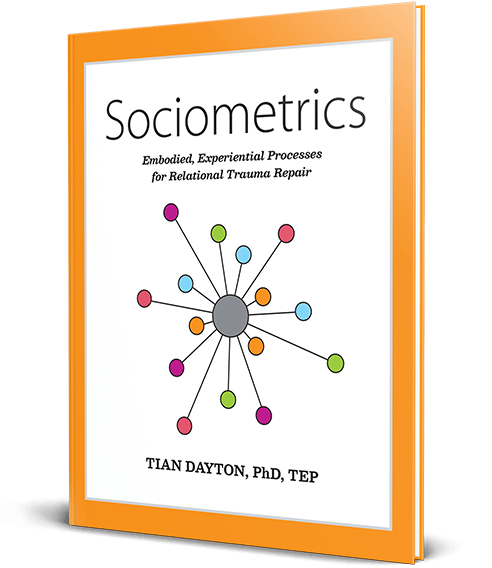By Wesley Gallagher
If you’ve experienced relational trauma or suffer from complex post-traumatic stress disorder (cPTSD), treatment for these issues will likely involve a combination of different types of therapies. One particularly beneficial treatment is relational trauma repair, an experiential group therapy that uses specific exercises to teach emotional literacy and self- and co-regulation.
What is Relational Trauma?
According to VerywellHealth.com, relational trauma is trauma that occurs within a close relationship. It is often the result of abuse, neglect, abandonment, or enmeshment, and although it can happen in adult relationships, it usually comes from traumatic relationships between children and their caregivers. Unlike acute trauma, relational trauma (sometimes referred to as complex relational trauma) is repeated and happens over a long period of time.
Unresolved relational trauma can have profound and prolonged effects on the way a person relates to others.
Unresolved relational trauma can have profound and prolonged effects on the way a person relates to others. Most relational trauma stems from child abuse, which damages brain development and inhibits the development of healthy attachment. Relational trauma can lead to a host of mental health issues, such as depression, anxiety, personality disorders, self-harm, and substance abuse. It can also lead to complex PTSD, which is caused by prolonged or chronic trauma and manifests similarly to PTSD but includes other symptoms like low self-esteem, emotional dysfunction, and relational problems.
Sociometrics: How Embodied, Experiential Processes for Relational Trauma Repair Can Help
 Sociometrics for relational trauma repair was developed by Meadows Senior Fellow Tian Dayton, an expert in psychodrama, sociometry, and experiential therapy. Sociometrics for relational trauma repair uses experiential processes to connect members of a group in low-risk encounters and small-group breakdowns to access the healing potential within the group. This type of experiential therapy is meant to heal relational trauma issues and restore aliveness and resilience.
Sociometrics for relational trauma repair was developed by Meadows Senior Fellow Tian Dayton, an expert in psychodrama, sociometry, and experiential therapy. Sociometrics for relational trauma repair uses experiential processes to connect members of a group in low-risk encounters and small-group breakdowns to access the healing potential within the group. This type of experiential therapy is meant to heal relational trauma issues and restore aliveness and resilience.
The foundation of Tian Dayton’s Sociometrics is made up of the following exercises:
- Floor Checks
Floor checks are a full-body experience that starts with emotions, rather than discussion of past experiences, to spark healing from trauma. In this group exercise, participants are asked to look at a series of feeling words that are written on cards on the floor and walk to the feeling that best describes their mood at the moment. They are then asked to share why they are standing where they are.
This process is repeated and adjusted to allow people to feel more and more comfortable sitting with and sharing their emotions. By starting with feelings, participants can ease into vulnerability and emotional healing by relating to others in the group. This can also be done with symptoms of relational trauma written on the cards instead of feelings, to allow participants to recognize and acknowledge how relational trauma manifests in their lives.
- Timelines
Trauma timelines provide context and experiential meaning-making by allowing people to identify the developmental progression of trauma. Patients are asked to place stressful, painful, or traumatizing incidents or relational dynamics on a timeline broken into five-year increments. This allows them to see where traumas may have been more concentrated and identify where development may have been affected by trauma. This exercise puts life experience into context and places traumatic experience into real, rather than imagined, time.
Resilience timelines, on the other hand, allow patients to see times when they felt good about themselves or made good choices, developed strengths, or valued the love or support people gave them. This serves to identify inner strengths and supportive relationships and encourage patients to move in a positive direction.
- Social Atoms
Social atoms are maps that reveal the relational life of the patient, graphing relational conflicts, complexes, or wished-for scenes on paper. Participants place themselves as a shape or “atom” on a piece of paper during a specific time in their life, and then place other important relationships as close to or distant from them as they feel they should be. These can be done for a variety of circumstances and relationships.
Social atoms bring the past into the present and allow people to feel previously unfelt feelings and say previously unsaid words to move the body and mind out of frozenness and into expression.
- Experiential Letter Writing
One of the most basic and simple forms of role play, experiential letter writing allows people to process feelings toward another person or a part of the self in a therapeutic way. Patients spend time writing a letter to someone, expressing anything that comes to mind and being totally honest with their feelings. These letters are not sent to anyone, but are used to release feelings about important relationships, including relationships to parts of the self. The letters may be read in small groups. This can be an immensely healing experience.
The groups in these therapies become a sort of mini-society in which participants relearn how to self-regulate and co-regulate, and begin to heal attachment issues by relating deeply in a safe environment with others. Participants pay attention not only to their own emotions but also to the emotions and experiences of others, allowing for a reconstruction of relational abilities and healing of stunted development of attachment.

Sociometrics: Embodied, Experiential Processes for Relational Trauma Repair at The Meadows
If you or a loved one is dealing with the effects of any type of trauma, including relational trauma, The Meadows offers a range of therapies for a variety of mental health and addiction issues related to trauma. Relational trauma repair and other experiential therapies are an integral part of our processes, and we will work with you to develop a personalized treatment plan that will give you the foundation you need to begin the road to lasting healing. Contact us today to learn more.



